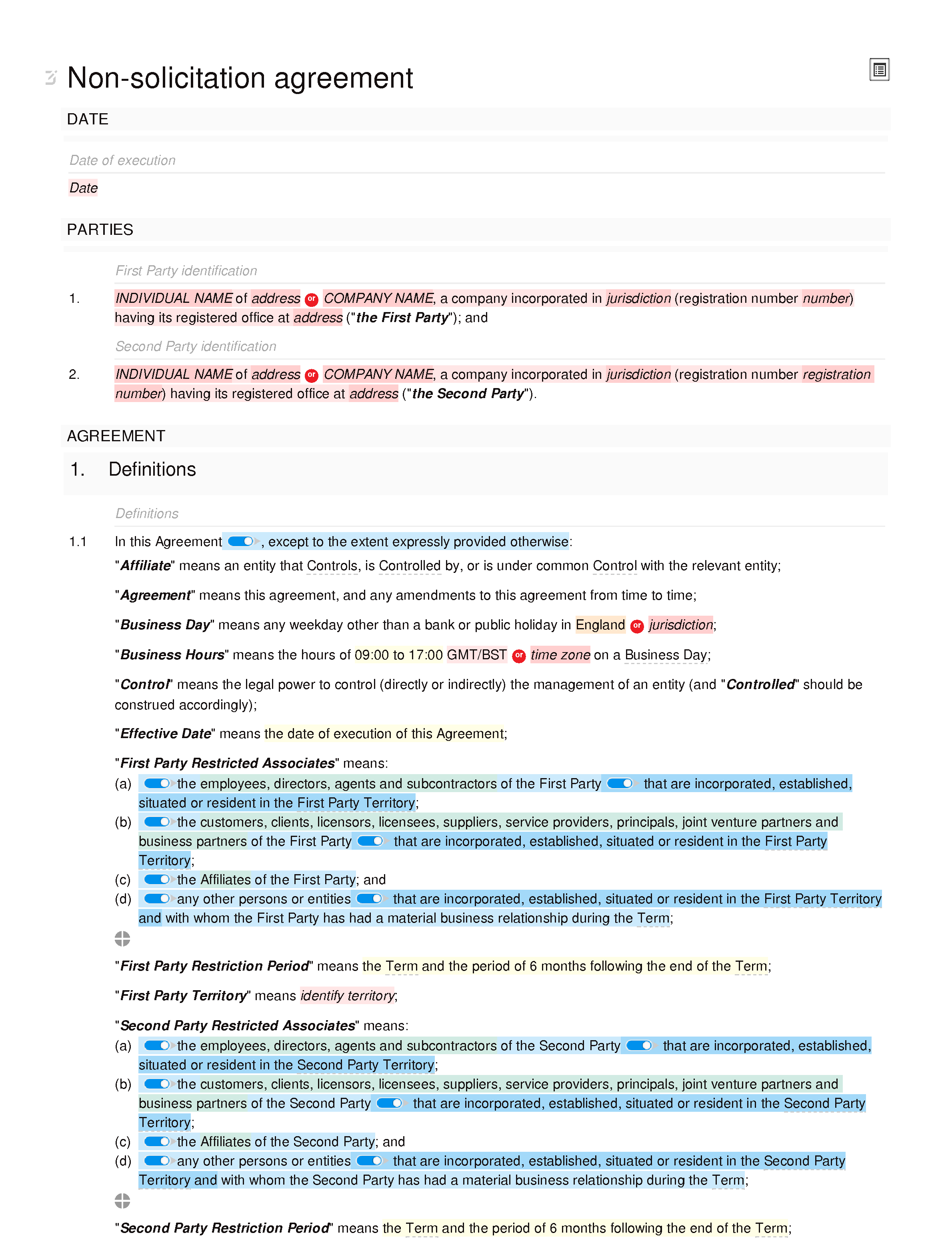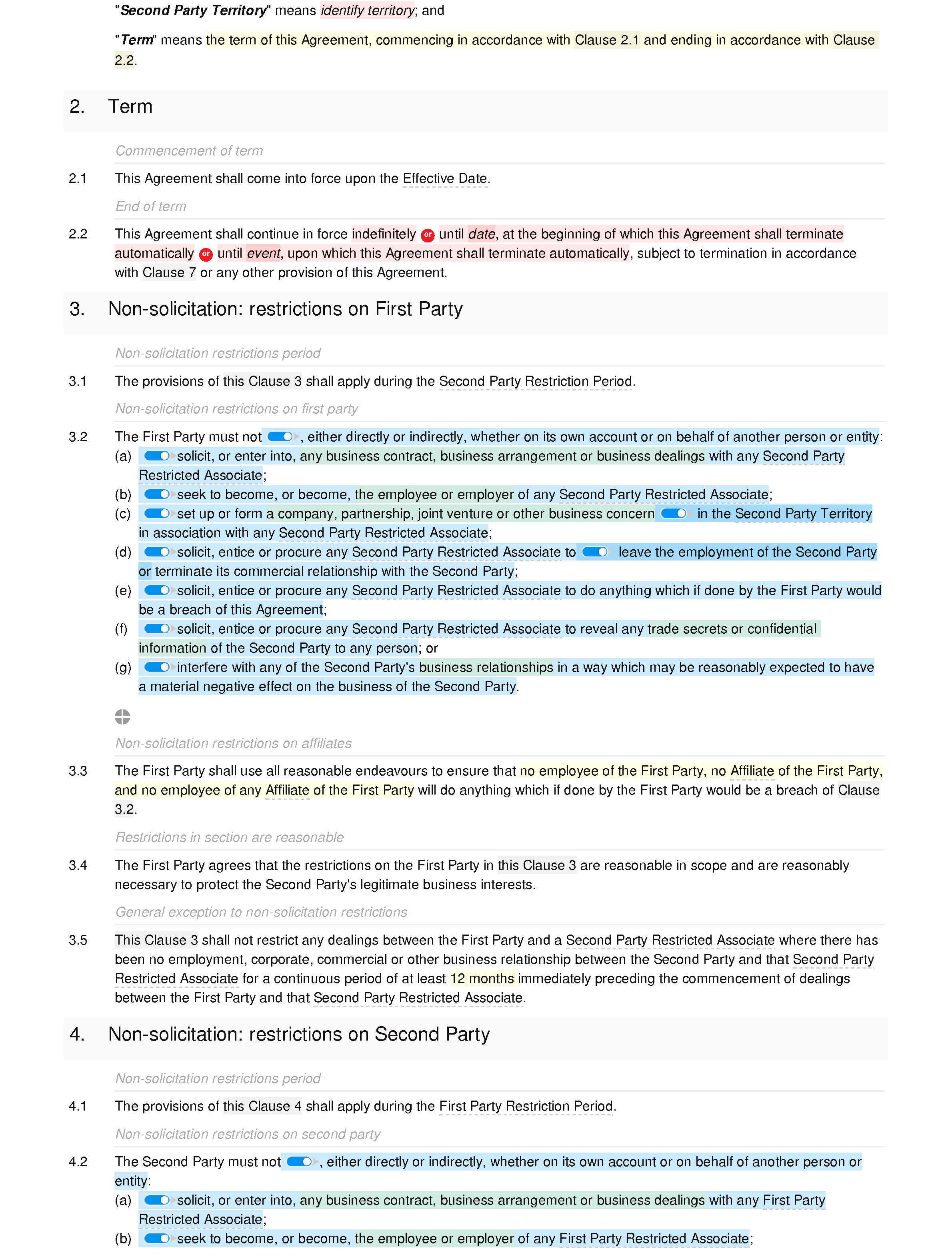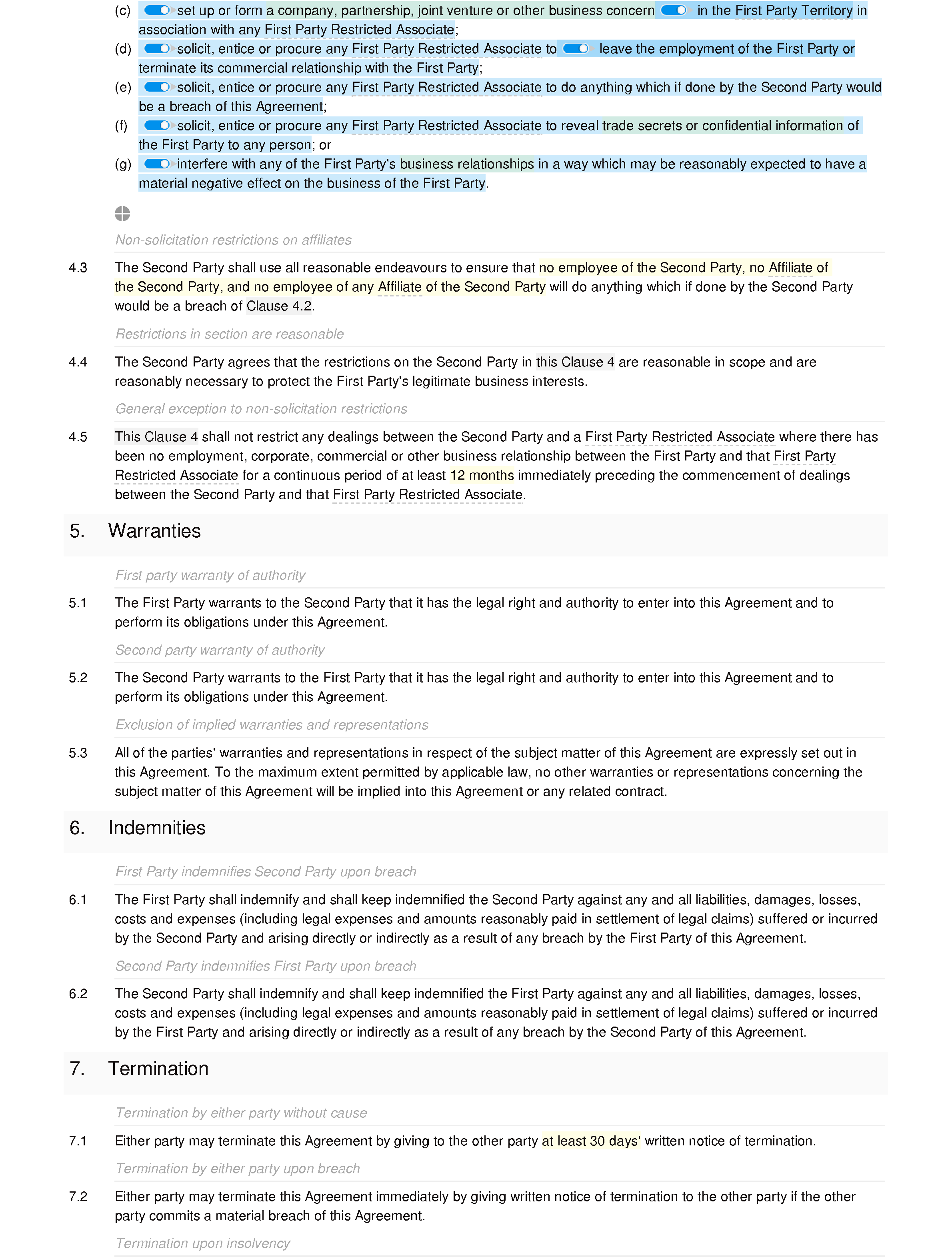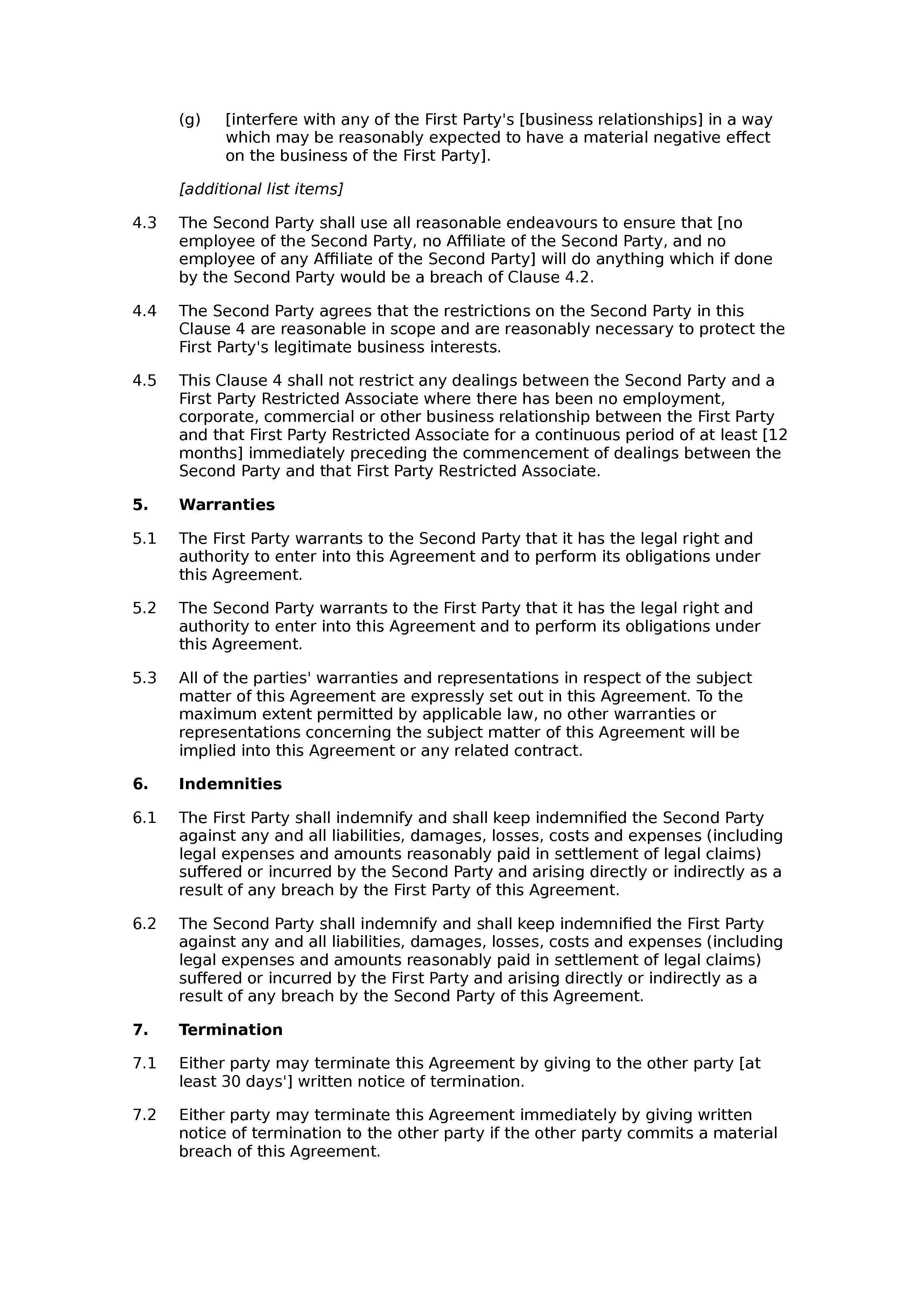Non-solicitation agreement (mutual)
This is a straightforward non-solicitation agreement template. The template is designed to help businesses to protect their legitimate interests through contractual prohibitions restricting dealings with third parties.
The restraints of trade doctrine can affect the enforceability of a non-solicitation agreement. Contractual provisions that amount to covenants in restraint of trade are prima facie unenforceable. They will usually only be enforced by the courts where they are reasonable with respect to the particular interests of the parties involved (although there are some exceptions).
In addition to the restraints of trade doctrine, UK and EU competition law may affect the enforceability and legality of a non-solicitation agreement. Non-solicitation agreements may amount to anti-competitive agreements under Chapter I of the Competition Act 1998 and/or Article 81 of the EC Treaty. A discussion of these areas of law is well beyond the scope of this note. You can find out more about UK and EU competition law on the OFT website at http://www.oft.gov.uk/. Where competition law issues may arise, you should take specialist legal advice.
Non-solicitation agreement (mutual) contents
- Definitions: definitions.
- Term: commencement of term; end of term.
- Non-solicitation: restrictions on First Party: non-solicitation restrictions period; non-solicitation restrictions on first party; non-solicitation restrictions on affiliates; restrictions in section are reasonable; general exception to non-solicitation restrictions.
- Non-solicitation: restrictions on Second Party: non-solicitation restrictions period; non-solicitation restrictions on second party; non-solicitation restrictions on affiliates; restrictions in section are reasonable; general exception to non-solicitation restrictions.
- Warranties: first party warranty of authority; second party warranty of authority; exclusion of implied warranties and representations.
- Indemnities: First PartyindemnifiesSecond Partyupon breach;Second PartyindemnifiesFirst Partyupon breach.
- Termination: termination by either party without cause; termination by either party upon breach; termination upon insolvency.
- Effects of termination: surviving provisions upon termination; termination does not affect accrued rights.
- Notices: methods and deemed receipt of contractual notices; contact details for contractual notices; substitute contact details for notices.
- General: no waiver; severability; variation written and signed; no assignment without written consent; no third party rights; caveats to limits of liability; entire agreement; governing law; exclusive jurisdiction.
- Interpretation: statutory references; section headings not affecting interpretation; calendar month meaning; no ejusdem generis.








